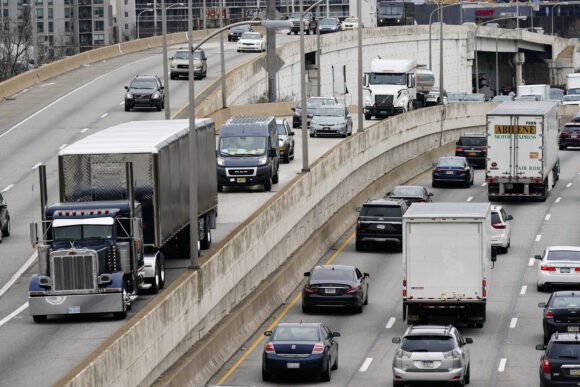A proposed legislative package in Michigan aimed at mandating across-the-board premium reductions for auto insurance policies is drawing sharp criticism from industry experts, who warn it could jeopardize market stability and inadvertently increase overall costs for drivers.
Introduced on May 29 by Senator Jeff Irwin, Senate Bill 328 seeks to compel insurance providers to implement a minimum 10% reduction in total premiums for all newly issued or renewed auto insurance policies. Crucially, the bill stipulates that this premium cut must occur without any reduction in the benefits provided under the policies. A companion bill, SB 329, goes further by barring insurance carriers from levying reinstatement fees or imposing higher premiums due to temporary lapses in coverage.
The American Property Casualty Insurance Association (APCIA), a national trade association representing property and casualty insurers, has issued a strong warning about the potential repercussions of SB 328. According to Joe Roth, assistant vice president for state government relations at APCIA, the proposed legislation would undercut the significant progress the Michigan auto insurance market has achieved since the sweeping no-fault reform was implemented in 2019.
“Data from the National Association of Insurance Commissioners (NAIC) shows that Michigan’s insurance landscape has been steadily improving,” Roth explained. “However, even with these improvements, insurers are still paying out roughly $1.04 in claims and operational expenses for every dollar in premium collected. Forcing a universal premium cut, without corresponding changes in cost structure, would immediately reverse this fragile progress.”
Roth added that the legislation could trigger a broader destabilization of the market, similar to the regulatory environment in California, which has faced ongoing insurance availability and pricing challenges. “Now is absolutely not the time to move Michigan toward a similarly strained market,” he said.
Senator Irwin, a Democrat representing Ann Arbor, argued that the legislation is intended to protect consumers who are currently burdened by high insurance costs, and to hold insurers accountable for what he views as disproportionate profit margins in the state’s auto insurance sector.
“Auto insurance in Michigan continues to be unaffordably expensive for many residents,” Irwin stated. “It’s long overdue for the Legislature to take real action and push back against these unreasonable and excessive car insurance rates.”
SB 328 has garnered support from eight additional Democratic senators and one Republican co-sponsor. It is currently under review by the Senate Committee on Finance, Insurance, and Consumer Protection, though no formal hearing has been scheduled at this time.
The APCIA has emphasized that Michigan has seen measurable success in lowering auto insurance premiums since the 2019 reform efforts were enacted. The association referenced a recent analysis by AM Best, which revealed that the average cost of personal auto insurance in Michigan declined by 12% between 2019 and 2022. In contrast, the national average premium increased by 5% over the same period.
“This bill will end up making things worse for Michigan’s drivers, particularly those from working-class backgrounds,” Roth argued. “The 2019 reforms were instrumental in reducing claims costs and restoring competition in the market by attracting insurers back to the state. That competition gave consumers more options and helped drive prices down. If passed, SB 328 could reverse those gains, reduce insurer participation, and ultimately limit consumer choice.”
Roth concluded by warning that while the intent behind the bill may be to ease financial strain for Michigan motorists, the likely outcome would be higher costs, fewer coverage options, and a weakened insurance market over the long term.
As the legislation awaits further action in committee, the debate highlights a broader tension between consumer affordability and market sustainability in the state’s evolving auto insurance landscape.

